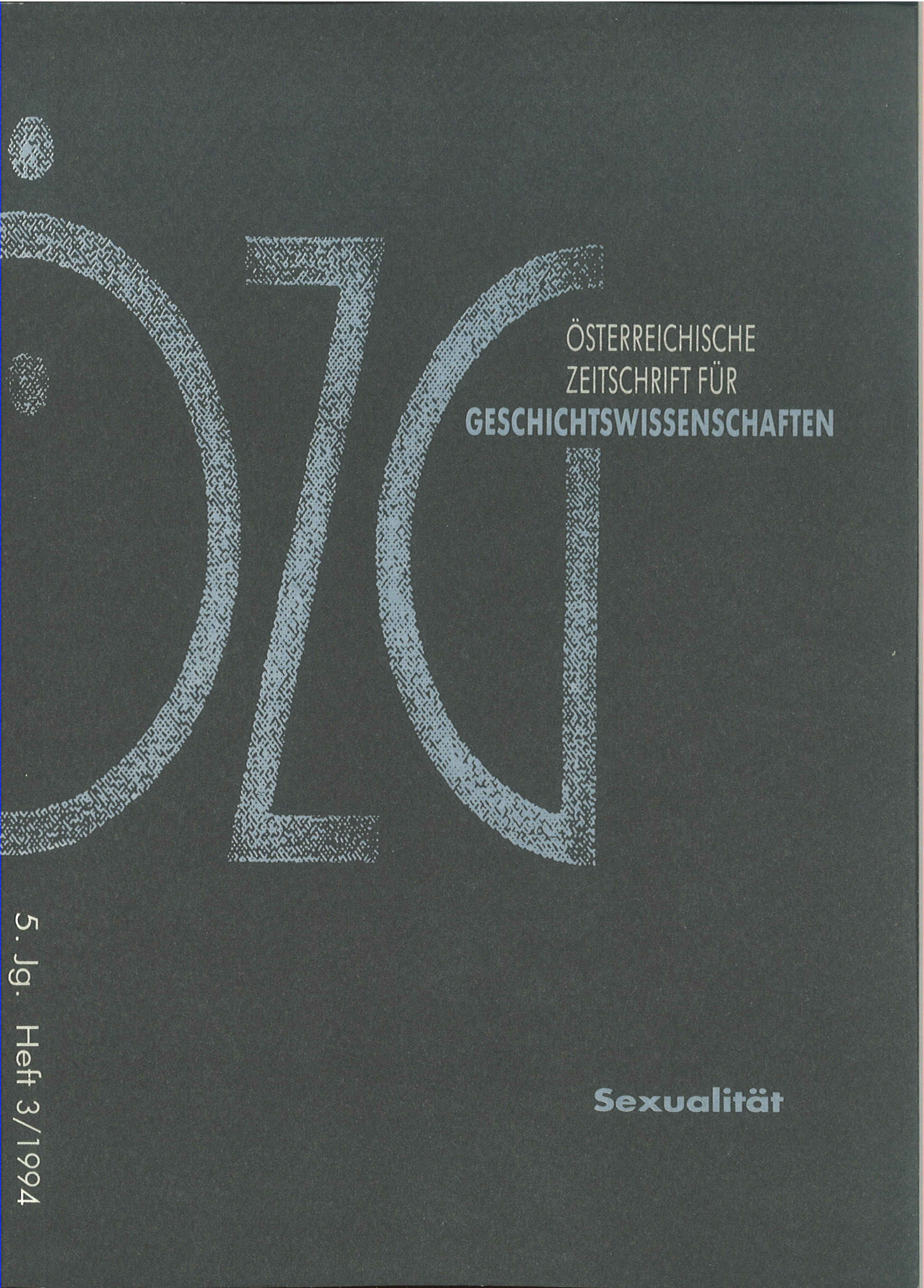Historisizing the Sexual Subject
Historiography of Sexuality Between Essentialism and Social Constructivism
DOI:
https://doi.org/10.25365/oezg-1994-5-3-2Abstract
Since the early seventies, the debate between essentialism and social constructivism has turned on universal, transcultural versus sociocultural determinations of human sexuality and has thus contributed to the rise of a new historiography of sexuality. The paper compares these two strands of discourse. On the side of essentialism the fronts in psycho- and socio-biology as well as in Freud-based historiography of sexuality have become solidified, hormones, genes and psychic structures being regarded as the - largely unresolved - primary motors of sexual desire, sexual orientation and the sexual subject itself. In stark contrast the different versions of social constructivism, labelling theory, and Foucault's history of sexuality postulate a ,sexual subject' at the mercy of its modern knowledge about sexuality. Its sexual perception and identity, even its sexual drive, are regarded as sociocultural constructs. As connotation-fraught terms, categories and symbols are considered to hold both sexual research and the historiography of sexuality under their spell.


